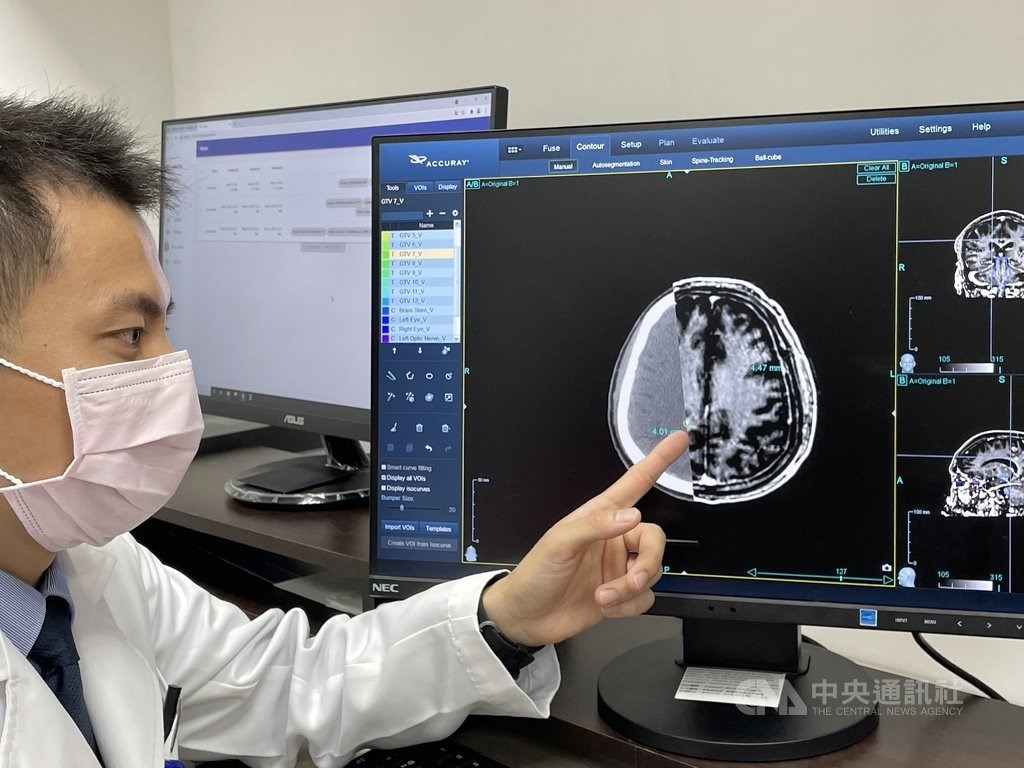
AI tech helps Taiwan doctors identify brain tumors more accurately
2021-05-05
Source: CNA news

NTUH oncologist Hsu Feng-ming. CNA photo May 4, 2021
Taipei, May 4 (CNA) A technology that uses artificial intelligence has helped doctors at National Taiwan University Hospital (NTUH) identify tiny brain tumors which could easily have been missed by traditional manual contouring, the hospital said Tuesday.
At a press conference, NTUH Superintendent Wu Ming-shiang (吳明賢) described VBrain, a brain tumor auto-contouring system developed by Boston-based Vysioneer LLC, as an "eagle eye."
The system has been used at NTUH for the past 18 months as part of clinical trials and helped doctors treat more than 100 patients with brain tumors, including a terminally ill woman whose lung cancer metastasized to her brain.
Doctor Xiao Fu-ren (蕭輔仁) said he had successfully identified nine tumors in the female patient based on her imaging testing, but VBrain later detected two more.
As a result, the patient received radiation therapy targeting the 11 tumors, saving her both time and money spent on a second treatment in the event the two tumors were not initially identified, according to Xiao.
Hsu Feng-ming (許峯銘), who specializes in radiation oncology at NTUH, said 10 percent of tiny brain tumors, mostly malicious brain metastases, can be missed with manual contouring.
He also estimated that using AI technology cuts the time spent on tumor contouring by 50 percent, which enables patients to receive the treatment they need as soon as possible.
NTUH Department of Oncology director Yeh Kun-huei (葉坤輝) said that with AI technology, even tiny tumors can be treated precisely thereby ensuring patients experience fewer side effects.
To prevent impacting healthy cells when treating cancer patients with radiation therapies, tumor cells and their volumes must be precisely identified through a contouring process, which is traditionally done manually by specialists using digital images.
In addition, using AI technology also means doctors have time to help additional patients or engage in more discussions with existing patients, added Yeh.
According to Vysioneer, it received clearance for VBrain from the United States' Food and Drug Administration in April.
The company is seeking approval for the system from Taiwan's authorities, said Lu Jen-tang (呂任棠), chief executive officer at Vysioneer, on Tuesday.
Meanwhile, Wu expressed hope it will be possible to treat other types of cancer using AI technology in the future.